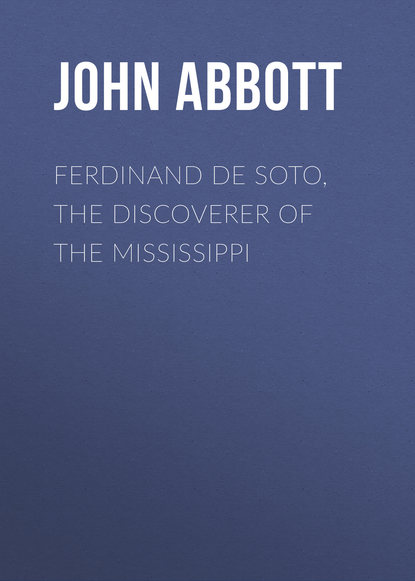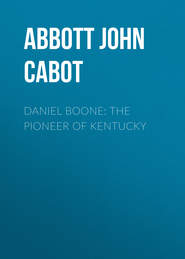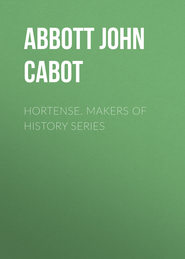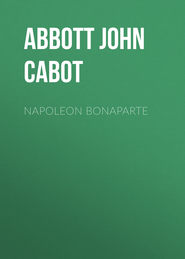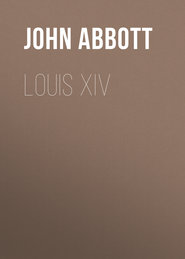По всем вопросам обращайтесь на: info@litportal.ru
(©) 2003-2024.
✖
Ferdinand De Soto, The Discoverer of the Mississippi
Настройки чтения
Размер шрифта
Высота строк
Поля
On the 20th of August the Spanish army, after having spent twenty-five days at Coosa, was again in movement. The chief of Coosa, and a large body of his warriors, accompanied De Soto to their frontiers, evidently as a friendly retinue. The Portuguese Narrative makes the incredible assertion that they were all prisoners, compelled to follow the army for its protection and as guides. With much more probability it is represented that one of the chief's subordinate officers on the frontier was in a state of insurrection, and that upon that account the chief gladly accompanied the Spaniards, hoping to overawe his refractory subjects by appearing among them with such formidable allies.
The Spaniards now entered the territory of Tuscaloosa, who was the most warlike and powerful chieftain of all the southern tribes. His domain comprised nearly the whole of the present States of Alabama and Mississippi. The Tuscaloosa, or Black Warrior river, flowed through one of the richest of his valleys. Though there were no mails or telegraphs in those days, Indian runners conveyed all important intelligence with very considerable rapidity. The chief had heard of the approach of the Spaniards, and the annalists of those days say, we know not with what authority, that he hesitated whether to receive them as friends or foes. Whatever may have been his secret thoughts, he certainly sent his son, a young man of eighteen, with a retinue of warriors, to meet De Soto with proffers of friendship.
The young ambassador was a splendid specimen of manhood, being taller than any Spaniard or Indian in the army, and admirably formed for both strength and agility. In his bearing he was self-possessed and courteous, appearing like a gentleman accustomed to polished society. De Soto was much impressed by his appearance and princely manners. He received him with the utmost kindness, made him several valuable presents, and dismissed him with friendly messages to his father, stating that he cordially accepted of his friendship, and would shortly visit him.
De Soto then crossed the river Tuscaloosa, or Black Warrior, having first taken an affectionate leave of the Cacique of Coosa, who had accompanied him to this frontier river. A journey of two days brought the Spaniards to within six miles of the large village where the chief of Tuscaloosa was awaiting their arrival. As they reached this spot in the evening, they encamped for the night in a pleasant grove. Early the next morning De Soto sent forward a courier to apprise the chief of his arrival, and set out soon after himself, accompanied by a suitable retinue of horsemen.
The chief had, however, by his own scouts, kept himself informed of every movement of the Spaniards. He had repaired with a hundred of his nobles, and a large band of warriors, to the summit of a hill, over which the route of the Spaniards led, and which commanded a magnificent prospect of the country for many leagues around. He was seated on a chair of state, and a canopy of parti-colored deerskin, very softly tanned, and somewhat resembling a large umbrella, was held over his head. His chief men were arranged respectfully and in order near him, while at a little distance his warriors were posted in martial bands. The whole spectacle, crowning the smooth and verdant hill, presented a beautiful pageant.
The Cacique was about forty years of age, and of gigantic proportions, being, like his son, nearly a head taller than any of his attendants. He was well-formed, and his countenance indicated perfect self-possession, intelligence, and great firmness. The sight of the cavaliers approaching with their silken banners, their glittering armor, and bestride their magnificent steeds, must have been astounding in the highest degree to one who had never seen a quadruped larger than a dog. But the proud chief assumed an air of imperturbable gravity and indifference.
One would have supposed that he had been accustomed to such scenes from his childhood. He did not deign even to look upon the horsemen, though some of them endeavored to arrest his attention by causing the animals to prance and rear. Without taking the slightest notice of the cavaliers who preceded De Soto, his eye seemed instantly to discern the Governor. As he approached, the chief courteously arose, and advanced a few steps to meet him. De Soto alighted from his horse, and with Spanish courtesy embraced the chieftain, who, with great dignity, addressed him in the following words:
"Mighty chief, I bid you welcome. I greet you as I would my brother. It is needless to talk long. What I have to say can be said in a few words. You shall know how willing I am to serve you. I am thankful for the things you have sent me, chiefly because they were yours. I am now ready to comply with your desires."
This interview, it is supposed, took place in the present county of Montgomery, Alabama. The whole party then returned to the village, De Soto and the chief walking arm in arm. A spacious house was assigned to De Soto and his suite by the side of that occupied by the Cacique.
After a rest of two days in the village, enjoying the rather cold and reserved, but abundant hospitality of the chief, the Spaniards continued their march. The chief, either for his own pleasure or by persuasion, was induced to accompany him. The most powerful horse in the army was selected to bear his herculean frame; and yet it is said that when the Cacique bestrode him his feet almost touched the ground. De Soto had made him a present of a dress and mantle of rich scarlet cloth Thus habited and mounted, with his towering plumes, he attracted all eyes. The two chieftains rode side by side. Their route led through the counties of Montgomery, Lowndes, and the southeastern part of Dallas, until they came to a large town called Piache, upon the Alabama river. This stream they passed on rafts of log and cane, probably in the upper part of the county of Wilcox. The expedition then turned in a southerly direction, following down the western bank of the Alabama through Wilcox county.
The Indian chief continued proud and distant; was observed to be frequently consulting with his principal men, and often dispatching runners in different directions. De Soto was led to suspect that some treachery was meditated. Two of the Spaniards, who had wandered a little distance in the woods, disappeared, and were never heard of again. It was suspected that they had been killed by the natives. The Cacique being questioned upon the subject, angrily and contemptuously replied:
"Why do you ask me about your people? Am I their keeper?"
These suspicions led De Soto to keep a close watch upon the chief. This was done secretly, while still friendly relations were maintained between them. It was more than probable that the chief was himself a spy in the Spanish camp, and that he was treacherously gathering his powerful armies at some favorable point where he could effectually annihilate the Spaniards, and enrich himself with all their possessions of armor and horses. It was therefore a matter of prudence, almost a vital necessity, for De Soto to throw an invisible guard around the chieftain, that all his movements might be narrowly observed, and that he might not take to sudden flight. With him in their hands as a hostage, the hostility of his warriors might, perhaps, be effectually arrested.
They were now approaching the town of Mobila, which was the capital of the Tuscaloosa kingdom. This town was probably situated at a place now called Choctaw Bluff, on the north or western side of the Alabama river, in the county of Clarke. At that point the Spaniards were at a distance of about twenty-five miles above the confluence of the Alabama and the Tombigbee, and about eighty-five miles from the bay of Pensacola. The town was beautifully situated upon a spacious plain, and consisted of eighty very large houses; each one of which, it was stated, would accommodate a thousand men.
As they approached this important place, De Soto sent forward some very reliable couriers, to observe if there were any indications of conspiracy. Early in the morning of the eighteenth of October, 1540, De Soto with the advance guard of his army, consisting of one hundred footmen, all picked men, accompanied by the Cacique, entered the streets of Mobila. Mr. Irving gives the following interesting account of this important capital:
"This was the stronghold of the Cacique, where he and his principal men resided. It stood in a fine plain, and was surrounded by a high wall, formed of huge trunks of trees driven into the ground, side by side, and wedged together. These were crossed, within and without, by others, small and longer, bound to them by bands made of split reeds and wild vines. The whole was thickly plastered over with a kind of mortar, made of clay and straw trampled together, which filled up every chink and crevice of the wood-work, so that it appeared as if smoothed with a trowel. Throughout its whole circuit, the wall was pierced at the height of a man with loopholes, whence arrows might be discharged at an enemy, and at every fifty paces, it was surmounted by a tower capable of holding seven or eight fighting men."
As De Soto and the chief, accompanied by the advance guard of the Spanish army, and a numerous train of Indian warriors, approached the walls, a large band of native soldiers, in compact martial array, and as usual gorgeously decorated, emerged from one of the gates. They were preceded by a musical band, playing upon Indian flutes, and were followed by a group of dancing girls, remarkably graceful and beautiful. As we have mentioned, De Soto, and the Cacique in his scarlet uniform, rode side by side. Traversing the streets, the whole band arrived in the central square. Here they alighted, and all the horses were led outside the walls to be tethered and fed.
The chief then, through Juan Ortiz, the interpreter, pointed out to De Soto one of the largest houses for the accommodation of himself and suite. Another adjoining house was appropriated to the servants and attendants. Cabins were also immediately reared just outside the walls for the accommodation of the main body of the army.
De Soto was somewhat anxious in view of this arrangement. It was effectually separating him from his soldiers, and was leaving the Cacique entirely at liberty. Some words passed between the chief and the Governor, which led to an angry reply on the part of the Cacique, who turned upon his heel and retired to his own palace. The main body of the army had not yet come up, and if the chief meditated treachery, the moment was very favorable for an attack upon the advance guard only.
Soon after the Cacique had left in an angry mood, one of the cavaliers whom De Soto had sent forward to examine into the state of affairs, entered with the announcement that many circumstances indicated a dark and treacherous plot. He said that more than ten thousand warriors, all evidently picked men, and thoroughly armed, were assembled in the various houses. Not a child was to be found in the town, and scarcely a woman, excepting the few dancing girls who had formed a part of the escort.
The Governor was much alarmed by these tidings. He dispatched orders to all the troops who were with him to be on the alert, and to hold themselves in readiness to repel an assault. At the same time he sent back a courier to inform Luis De Moscoso, who was master of the Spanish camp, of the dangerous posture of affairs. Unfortunately, relying upon the friendly spirit of the natives, he had allowed his men to scatter widely from the camp, hunting and amusing themselves. It was some time before they could be collected.
De Soto, anxious to avert a rupture, wished to get the person of the Cacique in his power. They had been accustomed since they met to eat together. As soon as the attendants of the Governor had prepared some refreshments for him, he sent Juan Ortiz to invite the Cacique to join him in the repast. The interpreter was not permitted to enter the palace, but after a little delay, a messenger announced that the Cacique would come pretty soon.
The Governor waited some time, and again sent Ortiz to repeat the invitation. Again the interpreter returned with the same response. After another interval of waiting, and the Cacique not appearing, Ortiz was sent for the third time. Approaching the door of the palace, he shouted out, in a voice sufficiently loud to be heard by all within, "Tell the chief of Tuscaloosa to come forth. The food is upon the table, and the Governor is waiting for him."
Immediately one of the principal attendants of the Cacique rushed out in a towering passion, and exclaimed:
"Who are these robbers, these vagabonds, who keep calling to my chief of Tuscaloosa, 'come out! come out!' with as little reverence as if he were one of them? By the sun and moon, this insolence is no longer to be borne! Let us cut them to pieces on the spot, and put an end to their wickedness and tyranny!"
Uttering these words, he threw off his superb mantle of marten skins, and seizing a bow from the hands of an attendant, drew an arrow to the head, aiming at a group of Spaniards in the public square. But before the arrow left the bow, a steel-clad cavalier, who had accompanied the interpreter, with one thrust of his sword laid the Indian dead at his feet. The son of the dead warrior, a vigorous young savage, sprang forward and let fly upon the cavalier six or seven arrows, as fast as he could draw them. But they all fell harmless from his armor. He then seized a club and struck him three or four blows over the head with such force that the blood gushed from beneath his casque.
All this was done in an instant, when the cavalier, recovering from his surprise, with two sword-thrusts, laid the young warrior dead in his blood by the side of his father. It seemed as though instantaneously the war-whoop resounded from a thousand throats.
The concealed warriors, ten thousand in number, with hideous yells, like swarming bees, rushed into the streets. De Soto had but two hundred men to meet them. But these were all admirably armed, and most of them protected by coats of mail. He immediately placed himself at the head of his troops, and slowly retreating, fighting fiercely every inch of the way, with his armored men facing the foe, succeeded in withdrawing through the gate out upon the open plain, where his horsemen could operate to better advantage. In the retreat five of the Spaniards were killed and many severely wounded, De Soto being one of the number.
The Indians came rushing out upon the plain in a tumultuous mass, with yells of defiance and victory. But the dragoons soon regained their horses, which had been tethered outside the walls, and whose bodies were much protected from the arrows of the natives; and then, in a terrific charge, one hundred steel-clad men, cutting to the right hand and to the left, maddened by the treachery of which they had been the victims, plunged into the densest masses of their foes, and every sabre-blow was death to a half-naked Indian. The slaughter was awful. Brave as the Indians were, they were thrown into a panic, and fled precipitately into the town.
In the retreat from the town, about twenty of the Spaniards had been cut off from their comrades, and had taken refuge in the house assigned to the Governor. Here they valiantly defended themselves against fearful odds. The bold storming of the place by the Spanish troops rescued them from their perilous position. But now all the warriors of both parties crowded together in the public square, fought hand to hand with a ferocity which could not be surpassed. Though the natives were far more numerous than their foes, and were equally brave and strong, still the Spaniards had a vast superiority over them in their bucklers, their impenetrable armor, and their long, keen sabres of steel.
De Soto, conscious that the very existence of his army depended upon the issue of the conflict, was ever in the thickest of the battle, notwithstanding the severity of the wound from which he was suffering. At length, to drive his foes from the protection of their houses, the torch was applied in many places. The timber of which they were built was dry almost as tinder. Soon the whole place was in flames, the fiery billows surging to and fro like a furnace. All alike fled from the conflagration. The horsemen were already upon the plain, and they cut down the fugitive Indians mercilessly.
The sun was then sinking; Mobila was in ruins, and its flaming dwellings formed the funeral pyre of thousands of the dead. The battle had lasted nine hours. To the Spaniards it was one of the most terrible calamities. Eighty-two of their number were slain. Nearly all the rest were more or less severely wounded. Forty-five horses had been shot – an irreparable loss which all the army deeply mourned.
In entering the city, they had piled their camp equipage against the walls. This was all consumed, consisting of clothing, armor, medicines, and all the pearls which they had collected. The disaster to the natives was still more dreadful. It is estimated that six thousand of their number perished by the sword or the flames. The fate of the chieftain is not with certainty known. It is generally supposed that he was slain and was consumed in the flames of his capital.
The situation of the Spanish army that night was distressing in the highest degree. They were hungry, exhausted, dejected, and seventeen hundred dangerous wounds demanded immediate attention. There was but one surgeon of the expedition who survived, and he was a man of but little skill.
De Soto forgot himself and his wound in devotion to the interests of his men. Foraging parties were sent in all directions to obtain food for the sufferers, and straw for bedding. Here the army was compelled many days to remain to recruit from the awful disaster with which it had been so suddenly overwhelmed.
CHAPTER XVI
Days of Darkness
The Melancholy Encampment. – The Fleet at Pensacola. – Singular Resolve of De Soto. – Hostility of the Natives. – Beautiful Scenery. – Winter Quarters on the Yazoo. – Feigned Friendship of the Cacique. – Trickery of Juan Ortiz. – The Terrible Battle of Chickasaw. – Dreadful Loss of the Spaniards.
For twenty-three days the Spaniards remained in their miserable quarters, nursing the sick and the wounded. As nearly all their baggage had been consumed in the flames, they were in a condition of extreme destitution and suffering. Parties, of those who were least disabled, were sent on foraging expeditions, penetrating the country around to a distance of about twelve miles. They found the villages deserted by the terror-stricken inhabitants. But they obtained a sufficient supply of food to meet their immediate wants. In the thickets and ravines they found the bodies of many Indians, who had died of their wounds, and had been left unburied by their companions. They also found in many of the deserted hamlets, wounded Indians, who could go no farther, and who were in a starving and dying condition. De Soto kindly ordered that their wounds should be dressed, and that they should be fed and nursed just as tenderly as his own men. Several captives were taken. De Soto inquired of them if another attack were meditated. They replied that all their warriors were slain; that none were left to renew the battle; that their chief had sent his son to watch the movements of the Spaniards, and had summoned his warriors from a great distance for their extermination. Nearly all were to be slain. The survivors were to be held as slaves. All their possessions and especially the magnificent animals they rode, were to be divided as the spoils of the conqueror. They said that their chief, upon the arrival of De Soto with his advance guard, was holding a council with his officers, to decide whether they should immediately attack those who had already arrived, or wait until the whole army was within their power. The passion and imprudence of one of their generals had precipitated the conflict.
The loss of the natives was even greater than De Soto had at first imagined. The thousands of Indian warriors who were within the spacious houses, shooting their arrows through windows, doors and loopholes, were many of them cut off from all escape, by the devouring flames. Bewildered, blinded, stifled by the smoke, and encircled by the billowy fire, they miserably perished.
While De Soto was thus encamped around the smouldering ruins of Mobila, he heard of the arrival of his fleet at Pensacola, then called the bay of Achusi. As he was but about one hundred miles from that point, an easy march of a few days would bring him to reinforcements and abundant supplies. The tidings of their arrival at first gave him great satisfaction. His determined spirit was still unvanquished. He immediately resolved to establish his colony on the shores of Pensacola Bay, whence he could have constant water communication with Cuba and with Spain. Having obtained a fresh supply of military stores and recruits from the ships, he would recommence his pursuit after gold.
While one cannot but condemn his persistence in a ruinous course, the invincible spirit it develops wins admiration. Indeed if we accept the facts of the affair at Mobila, as above described, and those facts seem to be fully corroborated by a careful examination of all the reliable annalists of those days, impartial history cannot severely condemn De Soto in that dreadful occurrence. But it cannot be denied that he would have acted much more wisely, had he followed the counsel of Isabella, previously given, and withdrawn from scenes thus fraught with violence, cruelty and blood.
As De Soto was conversing with some of his officers, of his plan of still prosecuting his journey in search of gold, he was told, not a little to his dismay, that his soldiers would not follow him. It was said that they were all thoroughly disheartened, and anxious to return to their homes, and that immediately upon reaching their ships, they would insist upon reembarking, and abandoning a land where they had thus far encountered only disasters.
The thought of returning to Cuba an impoverished man, having utterly failed in his expedition, surrounded by ragged and clamorous followers, and thus in disgrace, was to De Soto dreadful. Not making sufficient allowance for the difference in those respects between himself and his followers, he found it difficult to credit the representations which had been made to him. He therefore dressed himself in a disguise, and secretly wandered about by night among the frail huts of the soldiers, and soon found, by listening to their conversation, his worst fears confirmed. It became clear to his mind that immediately on his return to the ships, his present followers would disband and shift for themselves, while it would be in vain for him to attempt to raise another army.
Speaking of the distress with which these considerations oppressed the mind of De Soto, Mr. Irving well says, referring in confirmation of his statement, both to the account given by the Portuguese Narrative, and that by the Inca:
"Should his present forces desert him, therefore, he would remain stripped of dignity and command, blasted in reputation, his fortune expended in vain, and his enterprise, which had caused so much toil and trouble, a subject of scoffing rather than renown. The Governor was a man extremely jealous of his honor; and as he reflected upon these gloomy prospects, they produced sudden and desperate resolves. He disguised his anger and his knowledge of the schemes he had overheard, but he determined to frustrate them by turning back upon the coast, striking again into the interior, and never seeking the ships nor furnishing any tidings of himself, until he had crowned his enterprise gloriously by discovering new regions of wealth like those of Peru and Mexico.
"A change came over De Soto from this day. He was disconcerted in his favorite scheme of colonization, and had lost confidence in his followers. Instead of manifesting his usual frankness, energy and alacrity, he became a moody, irritable, discontented man. He no longer pretended to strike out any grand undertaking, went recklessly wandering from place to place, apparently without order or object, as if careless of time and life, and only anxious to finish his existence."
On the morning of the 15th of November, 1540, the troops, much to their consternation, received orders to commence their march to the north, instead of to the south. The established habits of military discipline, and the stern manner of De Soto, repelled all audible murmurs. Each soldier took with him two days' provision, which consisted mainly of roasted corn pounded into meal. It was not doubted that in the fertile region of that sunny clime they would find food by the way. But winter was approaching which, though short, would certainly bring with it some days and nights of such severe cold that an unsheltered army would almost perish.
After traversing a very pleasant country for five days, without meeting any adventure of any especial interest, they came to a river wide and deep, with precipitous banks, which is supposed to have been the Tuscaloosa, or Black Warrior. The point at which they touched this stream, upon whose banks they had already encamped, was probably near the present site of Erie, in Greene County. Here they found upon the farther banks of the river, a populous village called Cabusto. De Soto as usual sent a courier with a friendly message to the chief, saying "that he came in friendship and sought only an unobstructed path through his realms."
The chief returned the defiant reply —





